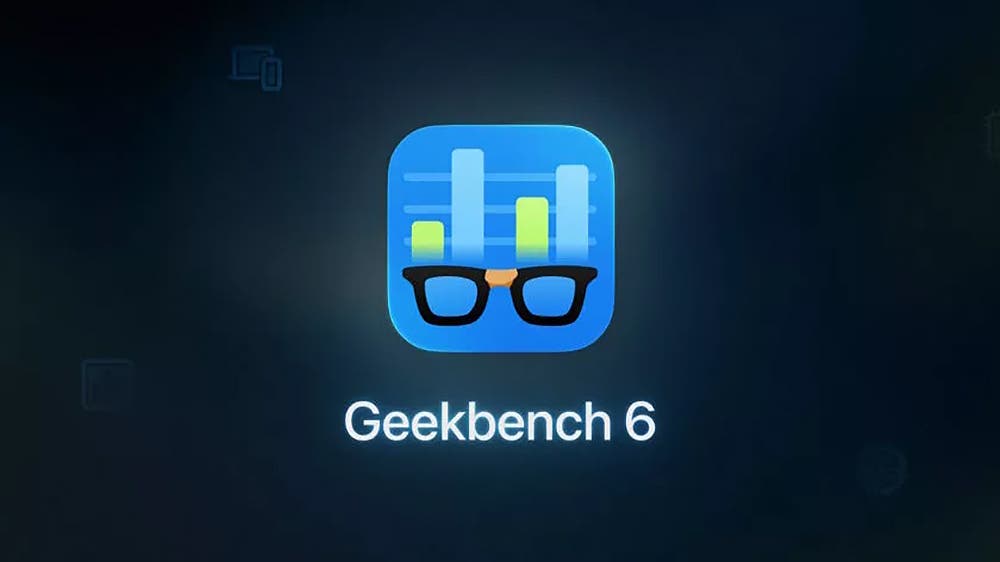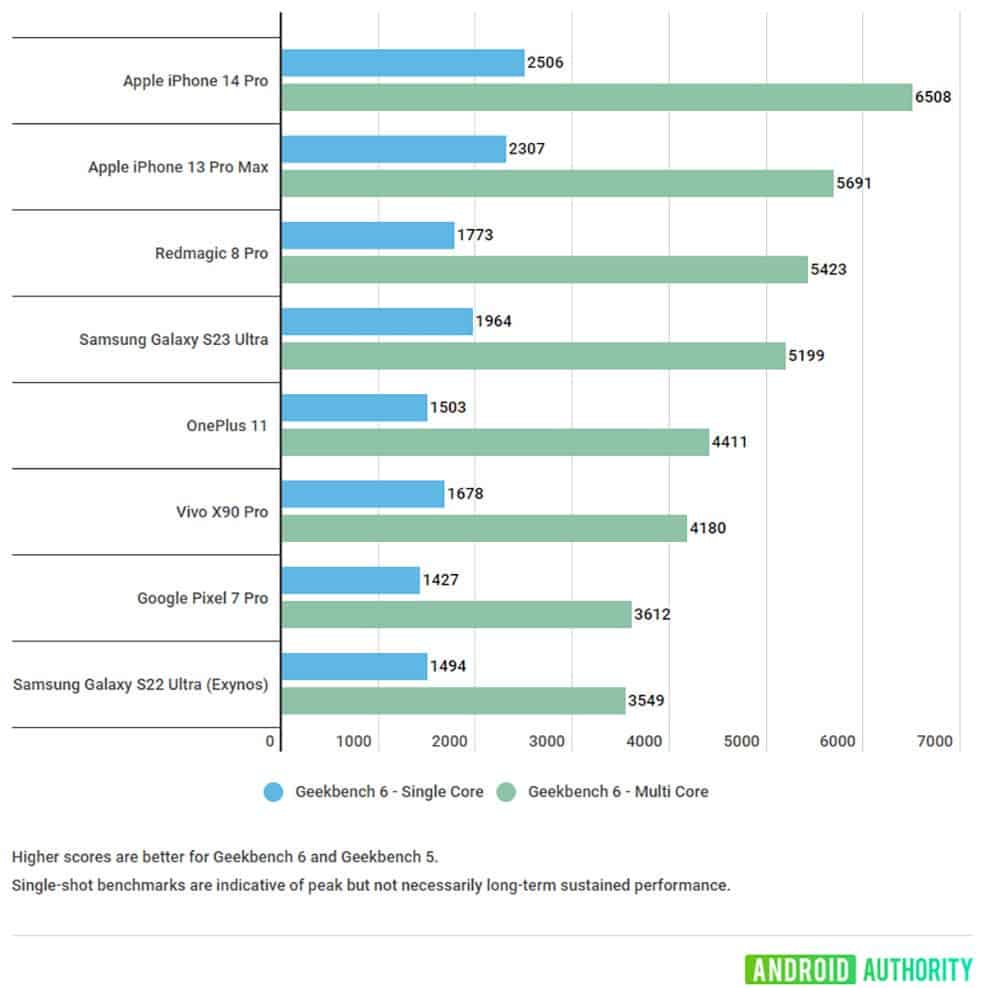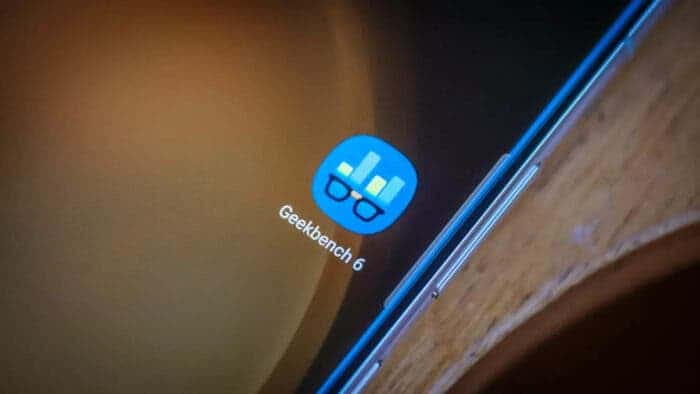

Geekbench 6 Results Show Galaxy S23 Ultra Is Not The Fastest Android Phone
source link: https://www.gizchina.com/2023/02/25/geekbench-6-results-show-galaxy-s23-ultra-is-not-the-fastest-android-phone/
Go to the source link to view the article. You can view the picture content, updated content and better typesetting reading experience. If the link is broken, please click the button below to view the snapshot at that time.

Geekbench 6 Results Show Galaxy S23 Ultra Is Not The Fastest Android Phone
Img src: AndroidAuthority
Geekbench has been one of the primary tools for evaluating the performance of the latest and the greatest phones. And till now, version 5 has been a staple. Well, things are about to change as Geekbench 6 is out.
So, what’s actually new in Geekbench 6? According to Joh Poole of Primate Labs, the new benchmarking tool is designed to improve real-world relevance. It now has the ability to emulate modern workloads. That includes running machine learning subject tagging, such as Google Photos.
But the most important change in the Geekbench 6 is the way multi-core workloads are handled and scored. The benchmark suite can better simulate how modern CPUs handle real-world scenarios. And this new method for testing and scoring multi-core workloads brings some surprising results.
How GeekBench 6 Handles Multi-core Tests
Geekbeench 5 is used to assign tasks to each of the cores and score them according to how well each core handled them. But that is not how real-world scenarios are handled by the modern CPUs. So, Geekbench 6 did a lot of under-the-hood tweaks, which made the suite up to date.
In the new benchmarking tool, processes are now shared across the cores. And this shared workload approach makes Geekbench 6 offer better real-world results. But that doesn’t mean that the processes are shared equally. After all, modern CPUs rarely splits the workload across all the cores into equal amounts.

Instead, different threads of differing sizes are often scheduled to the cores that are most suitable for the workload. Through this, Geekbench 6 makes a significant change. Scheduler optimizations, shared cache resources, and merged-core designs are likely to have even more sway over multi-score performance results.
RAM performance is also going to be a turning point for the phones. Also, Geekbench 6 improves on the single-core workloads. There are now much larger data sets than in version 5. This enables the new benchmarking tool to better stress the powerful CPU cores.
Galaxy S23 Ultra Lost the Lead
So, before talking about the Geekbench 6 results, let’s take a look at the scores of Geekbench 5. As you know, Apple iPhone 14 Pro and iPhone 13 Pro Max were on the top of the leaderboard. The A15 Bionic and the A16 Bionic were at the top of the chart in version 5. But that is not the main highlight.
Gizchina News of the week
Instead, it is all about the Galaxy S23 Ultra. The phone got 1581 points in single-core tests, while in multi-core tests, the phone achieved 5125 points. The closest competitor to the S23 Ultra in version 5 is the Redmagic 8 Pro. It gets 1291 in single-core tests and 5199 in multi-core. In other words, S23 Ultra is taking the lead.

But we saw the tables turn in the Geekbench 6 results. According to the test performed by Android Authority, the Galaxy S23 Ultra gets 5199 in multi-core tests, while it achieves 1964 in single-core. But the Redmagic 8 Pro takes the lead in the multi-core results. The gaming-oriented phone achieves 5423 points!

Yes, the S23 Ultra is still leading in the single-core results. Still, the lead that the Redmagic 8 Pro took is really impressive. So, what the Geekbench 6 results suggest is that the gaming-oriented Redmagic 8 Pro is actually better at handling resource-intensive tasks.
Nonetheless, Apple is still in the lead though. Both the iPhone 13 Pro Max and iPhone 14 Pro are at the top of the leaderboard on Geekbench 6. And it is quite interesting to see the Google Tensor chip on Pixel 7 Pro taking some ground. It is now closer to the other flagships that come with Snapdragon 8 Gen 2 chipset.
Recommend
-
 3
3
Geekbench Has Surface Duo 2 As Most Powerful Android PhoneMicrosoft's Surface Duo 2 recently launched, but not with much fanfare. As we pointe...
-
 8
8
Samsung Galaxy S22 Ultra/Note visits Geekbench with Snapdragon 8 Gen 1 SoC The
-
 2
2
Two-minute reviewThe Vivo X80 Pro is another entry into the growing roster of super-premium, super-pricey Android phones offering top...
-
 4
4
Samsung Galaxy S23 Ultra stops by Geekbench with Snapdragon 8 Gen 2
-
 4
4
Samsung Galaxy S23 Ultra Has Sharp and Vibrant Camera: New Leak
-
 2
2
In the world of Android phones, Samsung’s Galaxy S23 Ultra has achieved a significant milestone. The device from the South Korean company reached 1,600 points in the single-core category of the Geekbench 5 CPU test. In other terms, it is the most...
-
 2
2
Galaxy S23 Ultra vs iPhone 14 Pro Max: Charging and Battery Life Results Will Shock You!
-
 1
1
The Fastest Ways To Charge Your New Samsung Galaxy S23 Phone
-
 5
5
Samsung Galaxy Tab S9 and Tab S9 Ultra appear on Geekbench
-
 6
6
Samsung Galaxy S23 Ultra spotted running Android 14 on GeekBench
About Joyk
Aggregate valuable and interesting links.
Joyk means Joy of geeK
